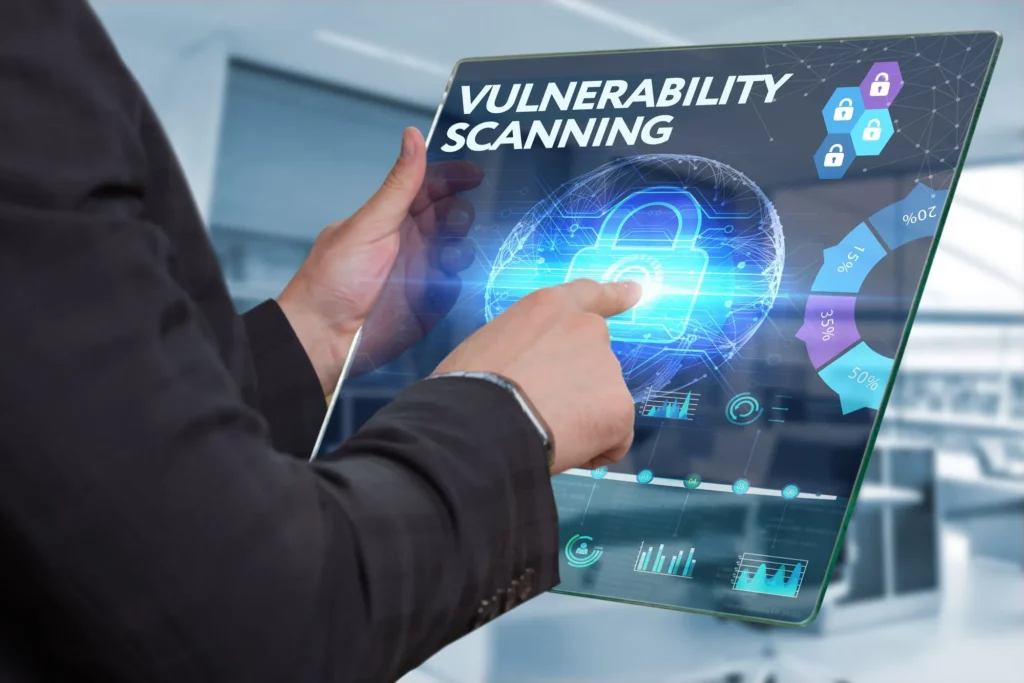The Importance of Quarterly Vulnerability Scanning

Vulnerability scanning is crucial for network security for several reasons:
- Identify Weaknesses: Vulnerability scanning helps detect weaknesses in your network’s security posture, such as outdated software, misconfigurations, or unpatched vulnerabilities. Identifying these weaknesses allows you to address them before they can be exploited by attackers.
- Prevent Exploits: By regularly scanning for vulnerabilities, you can stay ahead of potential threats. This proactive approach helps mitigate the risk of exploits and attacks, reducing the likelihood of data breaches or system compromises.
- Compliance Requirements: Many industries have regulatory requirements for security, such as PCI-DSS, HIPAA, or GDPR. Regular vulnerability scanning helps ensure that your network complies with these regulations, avoiding legal issues and potential fines.
- Prioritize Remediation: Scanning tools provide insights into the severity of vulnerabilities, helping you prioritize which issues to address first. This targeted approach ensures that you focus on the most critical vulnerabilities that pose the greatest risk.
- Maintain Security Posture: Networks and systems evolve, and new vulnerabilities are discovered regularly. Continuous scanning helps maintain a strong security posture by identifying new vulnerabilities and assessing the effectiveness of security measures over time.
- Minimize Attack Surface: Regular scans help you identify and close potential entry points for attackers, thereby reducing the overall attack surface of your network. This makes it more difficult for malicious actors to find and exploit weaknesses.
- Improve Incident Response: Knowing the vulnerabilities in your network helps improve your incident response strategy. You can develop and test response plans based on identified risks, ensuring that you are prepared to address security incidents effectively.
- Reduce Downtime: Addressing vulnerabilities before they are exploited helps prevent security incidents that could lead to downtime or service interruptions, ensuring that your network remains available and operational.
In summary, vulnerability scanning is an essential part of a comprehensive security strategy, helping you to proactively manage risks, meet compliance requirements, and protect your network from potential threats.







